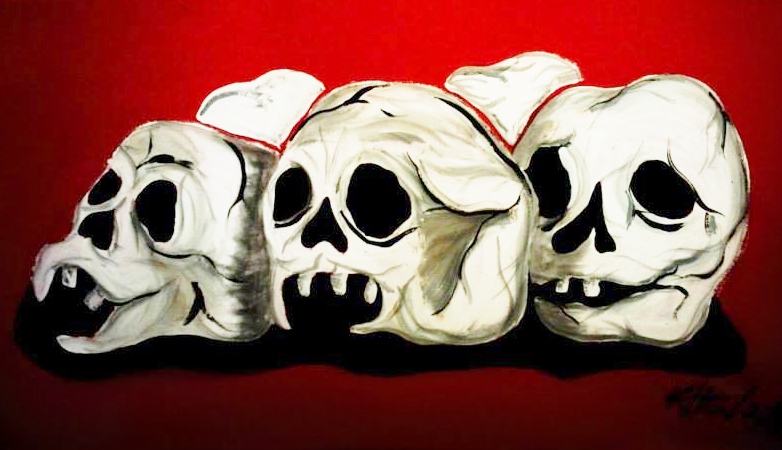
As states around the world tried to contain a global pandemic last week, the Sri Lankan government made time once more to highlight its disdain for human rights. Sri Lanka's president pardoned Sunil Ratnayake, the only soldier convicted for the brutal Mirusivil massacre, where eight Tamil civilians had their throats slashed and bodies dumped in a mass grave. He is one of only a handful of soldiers that have ever been convicted throughout Sri Lanka’s torturous history of mass atrocities. And now, despite overwhelming opposition by Tamils, human rights activists, the UN and diplomats, an executive pardon leaves Ratnayake a free man, praised by many in the south of the island for his actions. His pardon cements the climate of impunity in Sri Lanka which has repeatedly demonstrated that only a fully internationalised accountability mechanism can deliver justice for victims of the island’s deeply violent ethnocracy.
After more than a decade through Sri Lanka’s deeply biased legal system, victims of the Mirusivil finally saw a glimmer of justice when the Supreme Court confirmed Ratnayake's conviction and sentenced him to death in 2015. Indeed, whilst the other soldiers involved walked free, his sentence had been held up by some as a reason to restore faith in Sri Lanka’s domestic mechanisms. The current regime though has reinforced what it, and others before it, had already made abundantly clear. Sri Lanka will never prosecute soldiers for crimes committed against Tamils.
Amidst the coronavirus pandemic, states around the world have been urged to ensure that prisoners are kept safe, and the most vulnerable released to help prevent uncontrollable outbreaks. Sri Lankan president Gotabaya Rajapaksa, however did not have public health concerns in mind when pardoning this soldier. Instead, he used the cover of the outbreak to carry out this move long promised to his Sinhala nationalist electoral base. In the meantime, inmates in Anuradhapura prison were killed while protesting around coronavirus concerns and dozens of Tamil political prisoners continue to languish in detention.
This should not be surprising and is certainly not new. Sri Lanka's current president Gotabaya Rajapaksa, a credibly accused war criminal himself, has long pledged never to prosecute soldiers for rights abuses, rejecting a UN Human Rights Council resolution on accountability just last month. In doing so, he echoes the same Sinhala nationalist sentiment of those before him. For decades, under both of Sri Lanka’s major parties, crimes against Tamils have gone unpunished. Only last year, four Sri Lankan soldiers sentenced to the gang rape of a Tamil woman were acquitted with no opposition from the Sinhala polity. Even this week, whilst Tamil parties and organisations across the political spectrum decried the pardon, not a single Sinhala party has condemned the move. Instead, many virulently Sinhala nationalist voices across the south have praised it. A decade after the armed conflict, there has clearly been no reconciliation. There has been only the entrenchment of a racist ideology that allows murderers and rapists to walk free, and continue to be praised as ‘war heroes’.
The outlook for the island is now bleaker than ever. Recent months, and weeks, in particular, have made clear the path Sri Lanka will continue to travel down. Since taking office in November, Rajapaksa has ramped up the militarisation of various state institutions, with the coronavirus pandemic seized as an opportunity to further that. The Sri Lankan military has led what should be a public health response with Shavendra Silva, a commander who oversaw war crimes and explicitly named in the UN's OISL report, at the head of it. On the island, perpetrators of rights abuses are repeatedly rewarded.
Sri Lanka has rebuked any goodwill lent to it from the international community. It has proved time and again that it will not deliver justice, and if left unchecked, the state will only continue to reverse any slender gains in democracy and civil rights that may have been made since the end of the armed conflict. There is now only one way forward. The international community must finally heed the call that Tamil victims have consistently made since 2009 and lay the path for a fully international justice mechanism. Without it, Sri Lanka’s ethnocracy will become more illiberal, more militant and even more violent.
